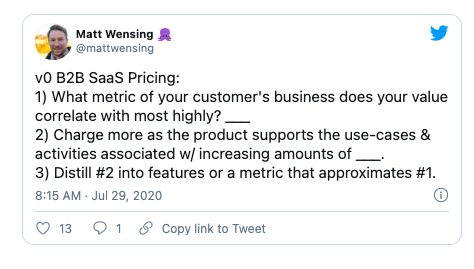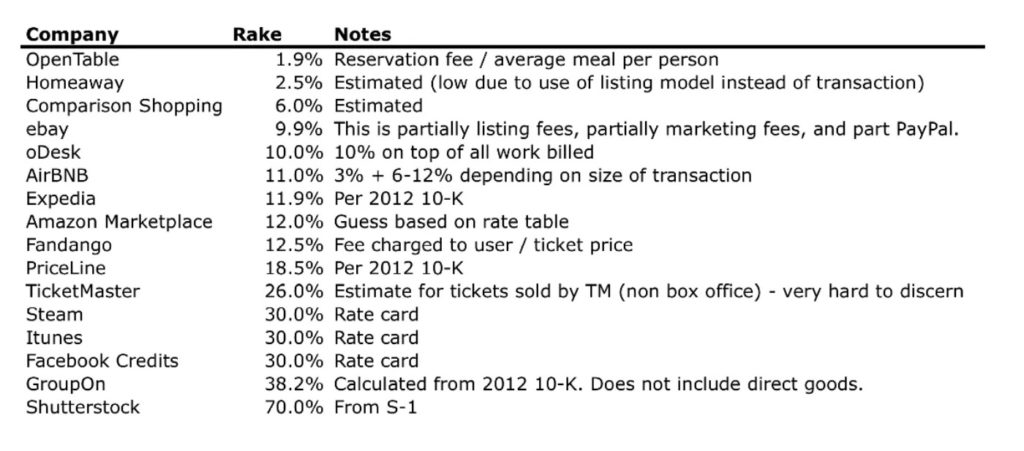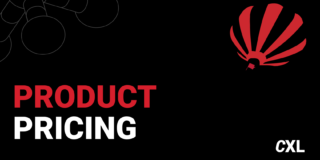Most businesses struggle with their product pricing strategies. Are you charging too much or too little? What’s the right price to charge so you can grow your bottom line?
The harsh reality is, there is no one magical pricing strategy. However, you can generate more revenue by constantly optimizing your pricing.
Most of us want to sell at maximum profitability, which means: sell as many (units, copies) as possible at as a high a price as possible. Here are 16 articles that will help you with your pricing.
Table of contents
- 1. Camels and rubber duckies
- 2. A rake too far: Optimal platform pricing strategy
- 3. Pricing strategy for creatives
- 4. E-book pricing trilogy
- 8. What I learned from increasing my prices
- 9. Pricing strategy: 10 ways to find the perfect price for your products
- 10. Product pricing primer
- 11. Pricing experiments you probably don’t know about
- 12. Are you making the most common pricing mistake?
- 13. Four pricing principles to never forget
- 14. Three pricing strategies
- 15. If your customers don’t care what you charge, what should you charge?
- 16. The good-better-best approach to pricing
- Conclusion
In no particular order:
1. Camels and rubber duckies
You launched a new software product. Congratulations! One of the biggest questions you’re going to be asking now is, “How much should I charge for my software?” Heres is Joel Spolsky’s excellent take.
When you’re setting a price, you’re sending a signal. If your competitor’s software ranges in price from about $100 to about $500, and you decide, heck, my product is about in the middle of the road, so I’ll sell it for $300, well, what message do you think you’re sending to your customers? You’re telling them that you think your software is “eh.”
2. A rake too far: Optimal platform pricing strategy
In casino land, the term “rake” refers to the commission that the house earns for operating a poker game.
If you run a platform and you charge others for using it, you need to read this one.
3. Pricing strategy for creatives
One of the most challenging parts of being a freelancer is charging what you’re worth. While many default to charging by the hour, it’s usually a bad idea.
Here’s how you should price instead.
4. E-book pricing trilogy
Three guys – Sacha Greif, Jarrod Drysdale and Nathan Barry – wrote ebooks. Each of them tried a different pricing strategy, and got different results.
Despite their success, it’s still not clear which strategy worked best. Optimal pricing depends entirely on your specific goals and type of business.
Read their posts in this order (as they were published):
5. How Perfect Pricing got me 1500 Sales in 2 Days
6. Perfect Pricing Part Deux — More money from fewer sales
7. An eBook pricing model that resulted in $100,000 in sales
8. What I learned from increasing my prices
Some really insightful lessons on what resulted in Bidsketch’s biggest increase in revenue ever.
Pricing is always hard. But knowing which segments you’re pricing a product for, and how much value they get out of your product, gives you a great starting point.”
Ruben | Extended Logic
9. Pricing strategy: 10 ways to find the perfect price for your products
When it comes to perfecting your pricing, you’re going to have to experiment. Shopify breaks down 10 ways to help you find the best pricing strategy for you.
The art of pricing requires you to also calculate how much human behavior impacts the way we perceive price.
10. Product pricing primer
Running pricing experiments is a great start, but these product pricing primers can safe you a ton of time.
11. Pricing experiments you probably don’t know about
One of my most read and shared articles ever. Here’s a list of some lesser known pricing experiments that can help you optimize your pricing strategy.
12. Are you making the most common pricing mistake?
Despite the click bait headline, this article makes a very important point. Ignoring it is costly.
13. Four pricing principles to never forget
This excellent article examines the most common mistakes startups make with pricing:
- Believing everyone should be happy to pay for your product.
- Believing there is some mythical “perfect” price which extracts maximum revenue from every single customer.
- Believing product pricing can never be changed once chosen.
- Delaying charging indefinitely as a result of 1, 2 and 3.
14. Three pricing strategies
There are three different strategies you can employ with pricing: cost plus pricing, competitive based pricing and value based pricing. Knowing the pros and cons of each can save you from costly mistakes.
15. If your customers don’t care what you charge, what should you charge?
While it’s rare to be in an industry where your customers truly don’t care about the price you charge, this article is incredibly insightful using gas as an example.
16. The good-better-best approach to pricing
The good-better-best approach to pricing is a great framework for getting your prices right. Here’s what you need to know.
G-B-B’s benefits come from three approaches: offensive plays aimed at generating new growth and revenue, defensive plays meant to counter or forestall moves by competitors, and behavioral plays that draw on principles of consumer psychology, whatever the competitive landscape.
Conclusion
There’s a lot of great insights on pricing shared in the articles above. Here are a few common themes shared in each.
- There is no perfect pricing. You won’t get your pricing right the first time, so stop stressing about it. Pricing is a process and requires continuous optimization like everything else.
- Higher prices lead to bigger profits. This is confirmed by a study of the Global 1200 that found if companies raised prices by just 1%, their average operating profits would increase by 11%
- Make sure your mobile SaaS pricing pages don’t suck.
- Human beings are irrational and don’t know the fair value of anything. Price anchoring and other “tricks” work very well.







Just a few other hits for you. Will Critchlow gave me some pricing links that were AMAZING:
training.kalzumeus.com/newsletters/archive/consulting_1
http://www.kalzumeus.com/2012/09/17/ramit-sethi-and-patrick-mckenzie-on-getting-your-first-consulting-client/
http://www.kalzumeus.com/2012/05/18/kalzumeus-podcast-ep-2-with-amy-hoy-pricing-products-and-passion/
http://www.kalzumeus.com/2012/09/21/ramit-sethi-and-patrick-mckenzie-on-why-your-customers-would-be-happier-if-you-charged-more/
I could give you double that but that’s probably more than plenty. Anyone doing freelance or agency pricing SHOULD look at the links on kalzumeus.com Love the links you gave above – about to go dig into the rest of them now.
Thanks!
Cheers, yeah I love patio11’s stuff.
Peep, This looks amazing. I appreciate your effort! I am blogger and I know what it takes to research and make great content!
Tks for the good information :)
Thanks for this collection Peep, I just pasted a link to it to a discussion on SEOMoz thread in LinkedIn where some of us are talking about the problem of being lowballed by competitors.
If somebody offers the *exact same* thing for a cheaper price, there’s little incentive to pay more. You need to communicate your value proposition better and make it clear why you’re worth the extra $$$.
Some great posts there Peep. Just had a look at the pricing strategies post, some good info in there.
Wonderful share here, Peep. Pricing is something I’ve always struggled with as an entrepreneur and you’ve given me some great resources. I still can’t believe that raising prices just 1% would increase overall profits by 11%. That is incredible!
Wow, that’s a lot of good reading material! I wrote up my own guide for pricing digital products:
http://www.clickbitz.com/blog/how-to-price-your-digital-product/
Things are only worth what people will pay for them. Testing is the only way to find out what that number is. Actually, you want to find that number that maximizes profit! :)
Thanks for the great stuff. I am a pricing strategist myself and I always tell my clients that: “Pricing optimization requires a real commitment”. I am always glad to see people experimenting…
Peep,
What do you think of Dan Kennedy’s NO B.S. Pricing Strategies?
-Chris